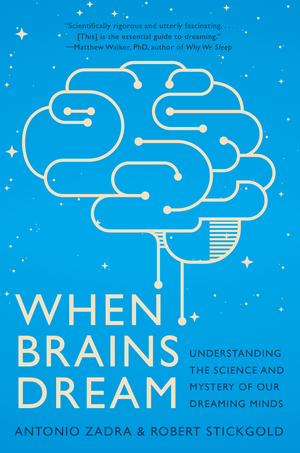Welcome to the fascinating world of dream interpretation! Dreams have intrigued humanity for centuries, offering glimpses into our subconscious mind, inner fears, desires, and unresolved issues. Unraveling the mysteries of dream symbols can provide valuable insights, empowering us to understand ourselves better and navigate our waking lives more consciously. This guide aims to help you unlock the meaning behind your dreams, exploring the science of dreams, understanding dream symbols, and providing practical techniques for dream interpretation.
The Science of Dreams
Understanding the historical and neurological aspects of dreams can set the foundation for insightful dream analysis.
The History of Dream Interpretation
- Ancient Beliefs and Practices: Dreams were considered messages from the gods and important for decision-making.
- Contributions of Sigmund Freud and Carl Jung: Freud emphasized hidden desires, while Jung introduced the concept of archetypes.
The Neurobiology of Dreaming
Recent research has shed light on the biological mechanisms underlying dreaming.
- Brain Activity During Dreaming: Studies show increased activity in the visual and emotional centers of the brain during REM sleep.
- The Role of REM Sleep: Rapid Eye Movement (REM) sleep is when most vivid dreams occur.
Types of Dreams and Their Significance
Dreams come in various forms, each carrying unique meanings.
- Lucid Dreams: Becoming aware of the dream state while asleep allows for self-discovery and control.
- Recurring Dreams: Repeated dreams may highlight unresolved issues or emotions.
- Prophetic Dreams: Some dreams seem to foreshadow future events, sparking discussions on precognition.
Understanding Dream Symbols
Dreams often communicate through symbols, archetypes, and personal associations.
Symbolism in Dreams
- Archetypes and Collective Unconscious: Jung’s theory suggests universal symbols shared among all cultures.
- Cultural and Personal Symbolism: Some symbols hold specific cultural meanings, while others are uniquely personal.
Common Dream Symbols and Their Meanings
Here are some frequently encountered dream symbols and their possible interpretations:
- Water: Represents emotions and the subconscious mind. Calm waters may signify tranquility, while turbulent waters could indicate emotional turmoil.
- Flying: Symbolizes freedom and control. Enjoying flight could suggest feelings of liberation, whereas struggling to fly may reflect a lack of control in waking life.
- Falling: Linked to fear of failure or losing control in a particular situation. It could also signify a lack of support or insecurity.
- Teeth: Reflects self-confidence and power. Dreams about teeth falling out might indicate anxieties about appearance or communication issues.
- Animals: Represent various instincts and personality traits. Different animals may symbolize courage, loyalty, cunning, or other attributes.
- Death: Often associated with transformation and new beginnings. Dreaming of death can indicate profound changes or the need to let go of the past.
Tools and Techniques for Dream Interpretation
Discover methods to delve deeper into the meanings of your dreams.
Keeping a Dream Journal
Recording your dreams in a journal is a fundamental step in dream analysis.
- The Importance of Recording Dreams: Writing down dreams enhances dream recall and helps detect patterns.
- Tips for Maintaining a Dream Journal: Keep the journal by your bedside, jot down dreams as soon as you wake up, and add emotions associated with each dream.
Analyzing Dream Themes and Patterns
Identifying recurring themes in dreams can reveal underlying issues.
- Identifying Recurring Themes: Pay attention to common elements, emotions, or scenarios in your dreams.
- Connecting Symbols to Personal Experiences: Relate dream symbols to your past and current life experiences for personal interpretations.
Active Imagination and Guided Visualization
Engaging with your dreams through visualization can offer deeper insights.
- Engaging with Dreams Through Visualization: Revisit dreams while awake and engage with dream characters or symbols.
- Techniques for Interacting with Dream Symbols: Engage in dialogues with dream characters or reshape dream scenarios to explore different outcomes.
Working with a Dream Therapist or Analyst
Professional guidance can be valuable for complex dream interpretations.
- Benefits of Professional Guidance: Trained dream therapists can provide unbiased insights and guide you through the interpretation process.
- What to Expect in Dream Therapy: The therapist will help you explore the meaning of your dreams in the context of your life experiences.
Interpreting Dreams in Context
Understanding the context of your dreams is essential for accurate interpretation.
Considerations for Cultural and Personal Background
Interpretation of dream symbols can be influenced by cultural beliefs and personal experiences.
The Role of Emotions in Dream Interpretation
Emotions experienced during dreams provide vital clues to their meaning.
Examining Stress and Anxiety in Dreams
Dreams can serve as a mirror for your stress levels and anxieties.
How Physical and Mental Health Affect Dreams
Health conditions and mental well-being can impact the content and intensity of dreams.
Real-Life Examples of Dream Interpretation
Exploring real cases of dream interpretation can illustrate the process in action.
Case Study 1: Overcoming Fear of Public Speaking
In this case, a person dreams of being onstage and facing an audience.
Case Study 2: Healing from a Traumatic Experience
Here, a survivor of a traumatic event experiences recurring dreams related to the incident.
Case Study 3: Navigating Career Transitions

In this example, a person dreaming about different career paths seeks clarity.
Avoiding Common Pitfalls in Dream Interpretation
Be aware of potential pitfalls that may affect the accuracy of dream analysis.
Over-Reliance on Dream Dictionaries
Generic dream dictionaries may not account for personal associations.
Ignoring Personal Context and Feelings
Interpretations must consider the dreamer’s unique experiences and emotions.
Recognizing the Limitations of Dream Analysis
Dream interpretation is subjective and not an exact science.
Embracing the Wisdom of Dreams
Appreciating the profound insights dreams offer can enrich your waking life.
Embracing the Mystery and Symbolism of Dreams
Dreams are a gateway to the subconscious, where mysteries reside.
Integrating Dream Wisdom into Waking Life
Applying dream insights to make positive changes in your daily life.
Frequently Asked Questions
Here are answers to some common questions about dream interpretation:
-
What are lucid dreams, and how can they be used for self-discovery?
Lucid dreams are dreams in which the dreamer becomes aware they are dreaming while still asleep. Lucid dreaming can be used for self-discovery and exploring the subconscious mind, allowing you to interact with dream elements consciously.
-
Can nightmares provide valuable insights into our subconscious fears?
Yes, nightmares can offer profound insights into our deepest fears and anxieties. Analyzing nightmares can help identify unresolved issues that may require attention.
-
How do cultural differences impact the interpretation of dream symbols?
Cultural backgrounds can influence the interpretation of dream symbols. For instance, animals may have varying symbolic meanings in different cultures.
-
Are there universal dream symbols that have similar meanings across cultures?
While some symbols, such as water representing emotions, have universal significance, others may differ depending on cultural context and individual experiences.
-
What role do emotions play in dream interpretation?
Emotions in dreams often mirror those experienced in waking life. Understanding dream emotions is crucial for accurate interpretation.
-
Is it possible to control the outcome of recurring dreams?
Yes, with lucid dreaming techniques, you may gain control over recurring dreams and transform their outcomes.
-
Can dreams predict the future or provide premonitions?
While some individuals claim to have prophetic dreams, scientific evidence supporting the predictive nature of dreams remains limited.
-
How do I know if I should seek professional help for recurring disturbing dreams?
If recurring dreams cause significant distress or interfere with daily life, consulting a dream therapist or mental health professional can be beneficial.
-
Are there any potential dangers in delving deep into dream interpretation?
For most individuals, dream interpretation is a safe and enriching process. However, those with severe psychological issues should approach dream exploration cautiously and with professional support.
-
Can dream symbols evolve and change over time for an individual?
Yes, dream symbols can evolve as life experiences, beliefs, and emotions change, leading to shifting interpretations over time.
Conclusion
Understanding the intricate world of dream symbols can be an enlightening journey. By exploring the science of dreams, decoding dream symbols, and applying various techniques, you can gain valuable insights into your subconscious mi you can try this out nd. Embrace the wisdom of your dreams, integrate their messages into your waking life, and embark on a path of self-discovery and personal growth.

Greetings and welcome to my corner of the digital realm! I’m Ethan Harrington, a dedicated and passionate professional in the field of therapy psychology. My journey through the intricate landscapes of the human mind, emotions, and dreams has led me to this point, where I’m excited to share my insights, knowledge, and experiences with you. See this

